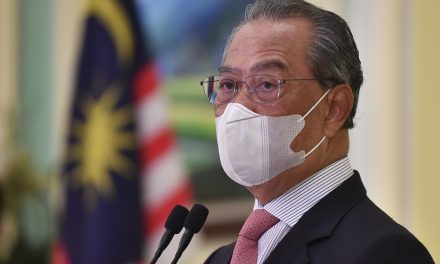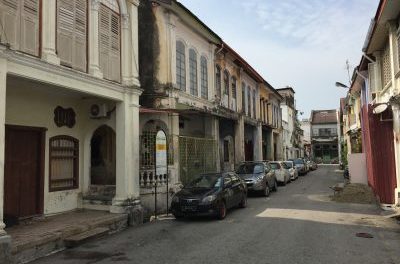Property prices not necessarily be affordable post-Covid
Property prices might not necessarily be more affordable post-Covid-19 due to market changes and wage growth. Housing and Local Government Minister Datuk Zuraida Kamaruddin said the economic crisis brought on by the Covid-19 pandemic saw the housing market, labour and financial sectors going through adjustments. As a result, she said wage growth could be lower or zero during the crisis, and the unemployment rate could be higher than any other period. She said this could lead to negative household debt-servicing capacity. Zuraida said the pandemic-challenged property industry saw more innovations on digital solutions, as more industry players stepped up their digitalisation initiatives last year to enhance their capacity to market products and engage with buyers via online platforms. She added that the reintroduction of the Home Ownership Campaign (HOC) had been a lifeline to the property market amid a challenging market induced by the pandemic. Besides that, she said the continued implementation of several mega infrastructure projects such as the Mass Rapid Transit Line 3 (MRT 3) and the Pan Borneo Highway would boost the property industry. (The Malaysian Reserve)
Malaysia has started discussing securing more vaccine doses for booster shots, children, says KJ
Malaysia has started discussions with pharmaceutical companies on possibly securing Covid-19 booster shots, as well as vaccines for children, by next year, says Khairy Jamaluddin. The Science, Technology and Innovation Minister clarified that even while discussions are ongoing, recommendations from local health experts concerning the need for a booster dose will be given next week. “We have a special focus on Pfizer’s new products, which are specifically for booster shots and for children,” he said. He stressed however that they are still waiting for recommendations by a group of health experts led by Institute for Clinical Research director, Dr Kalaiarasu Peariasamy. “The recommendations will not just cover whether we need a booster dose, but we will also look into whether we should do heterologous vaccination,” he said, referring to the administration of a different vaccine for the booster shot. (The Star)
‘Daily cases will rise further with more tests’ so don’t be alarmed
Don’t be alarmed over the high number of Covid-19 cases in the next few days as the daily number will decline in the coming weeks with more tests done and later restrategised, says Health deputy director-general Dr Chong Chee Kheong. With the Health Ministry encouraging more self-testing and the use of RTK-Antigen (RTK-Ag) to detect the virus, Dr Chong said the daily Covid-19 cases would rise further. “As more of these positive cases and their contacts are isolated and quarantined, cases will start to gradually come down in the weeks to come. Once that happens, the testing will be restrategised to ensure effective detection of cases for isolation and monitoring,” he said. On why the numbers are still rising in the Greater Klang Valley despite the vaccination rate being ramped up, Dr Chong said it was important to know that the size of the outbreak was far larger than the numbers detected each day. “Many asymptomatic or pre-symptomatic individuals, who are not aware of their infection, are spreading the virus. Remember that the vaccine effectiveness is best only two weeks after the second dose, so this takes time,” he explained. He said the Greater Klang Valley Special Task Force for Covid-19 had shifted from containment to mitigation efforts to prevent deaths and minimise the spread of the disease. (The Star)
MIDF Research: Malaysia could be free of MCO before 4Q21
Malaysia could be free of movement control orders (MCO) before the fourth quarter of this year (4Q21) as vaccination rates are ramped up ensure that the country’s entire adult population are fully immunised against Covid-19, said MIDF Research. The research house said based on the current pace of vaccine administration, it is possible to reach a 55% vaccination rate by September, citing the UK’s decision to remove restrictions such as physical distancing and wearing of face masks in public places once 54.4% of its population were fully vaccinated. MIDF Research pointed out while the UK is seeing a resurgence in Covid-19 cases, the higher infection rate was not accompanied by a corresponding jump in hospitalisation and ICU usage rates. “We expect Malaysia’s economic prospects to be better when the economy reopens, i.e. shifting to the next phases of the National Recovery Plan (NRP). Apart from rapid vaccination, upside surprises could come from a faster reopening of the economy with more states moving to the next phases of the NRP, and a stronger recovery in the latter part of the year driven by pent-up demand,” it said. (The Edge)
IGB Commercial REIT delays IPO listing, cuts size of institutional offering
IGB Commercial Real Estate Investment Trust (IGB Commercial REIT) has postponed its planned initial public offering (IPO), after extending the closing date for the restricted offering to Aug 20 from July 6. Meanwhile, the REIT’s tentative listing date has been pushed to Sept 20, from July 30. In a statement, IGB Commercial REIT said entitled shareholders have given feedback that the full movement control order had posed difficulties to them in subscribing for their entitlements under the restricted offering. With the extension of the closing date, the REIT said the entitled shareholders who have accepted their entitlements to the restricted offering are given the option to withdraw their acceptances, should they wish to do so. Meanwhile, the REIT said the selling shareholders and the manager have proposed to lower the number of units offered to the institutional investors and selected investors under the institutional offering, to at least 130 million units from at least 282 million units. Upon listing, the property trust is expected to have a market capitalization of RM2.31 billion. (The Edge)





